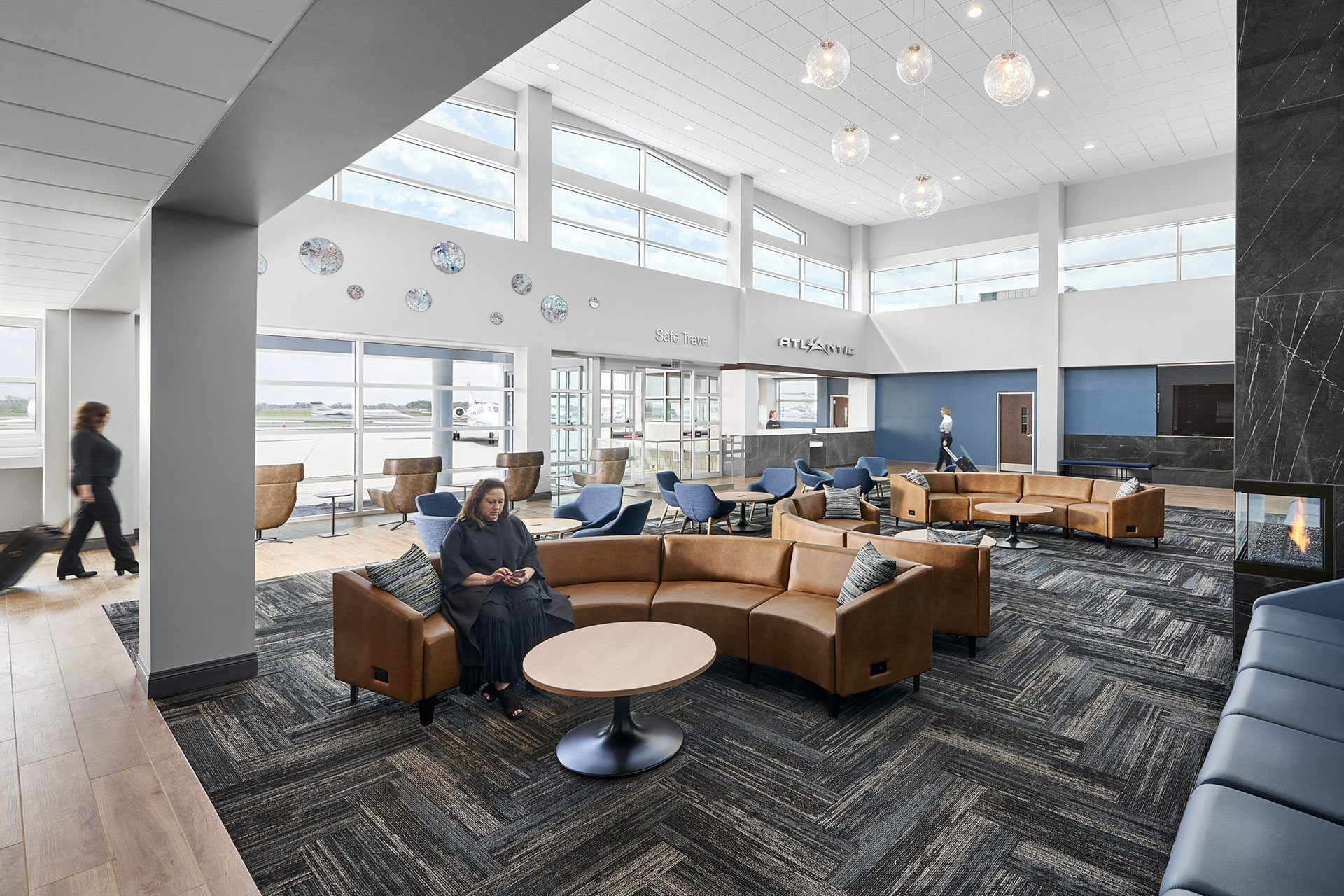What We Learned from Working with Atlantic Aviation
Our team recently completed an outstanding interior renovation for Atlantic Aviation, a fixed-base operator (FBO) at the Philadelphia airport. This experience demanded our team’s utmost attention to the rules and regulations set forth by the Transportation Security Administration (TSA) and the Department of Aviation (DOA). The lessons we learned from this project will greatly benefit our future work with FBOs. Here are a few things we experienced and our solutions.

Working with FBOs demands exceptional customer service between project teams.
Formcraft puts customers first always—it’s one of our core values. FBOs are no exception and demand even more communication between teams. First, the security regulations at an airport location completely differ from the rules we typically follow in office-based workplace environments. Our team had to communicate these restrictions to Atlantic Aviation—especially if the airfield’s restrictions would delay progress. Providing full disclosure of our progress and any roadblocks we encountered helped maintain a strong business relationship.
To keep the Atlantic Aviation team informed, we hosted weekly meetings. In addition, our site supervisor, Sam Aaron, developed a strong relationship with their general manager to communicate day-to-day activities.
Throughout our time working together, we encountered a few challenges that we overcame with great teamwork.
Here are a few examples of challenges FBOs face:
- Securing permits takes time: Completing construction work at an airfield involves collaborating with the DOA, TSA, and local municipalities to ensure compliance and safety.
- Always build durable egresses: Designing and building sturdy industrial entrances is important. For example, the line prep workers at Atlantic Aviation come in and out of the terminal in all weather conditions. They needed a floor that could withstand their work boots and equipment.
- When the unexpected happens, get ready to pivot: During our renovation, we planned on tying the new sinks and toilets into existing sanitary lines. However, when we dug them up, we found corroded lines. To solve this problem, we dug up and replaced more of the lines. This prevented a larger problem in the future.
- Take pre-existing condition images: It’s important to note the condition of the surrounding area before construction begins to reduce liability for machinery or materials.
Throughout all of these challenges, our team worked together with Atlantic Aviation to deliver successful solutions.
Keep security top of mind, always.
Safety and compliance were extremely important during our Atlantic Aviation project because we had to keep the airfield secure at all times to protect travelers. Our renovation didn’t impede the private flights planned, and we set up temporary trailers for the FBO customers. Just as a terminal must remain secure, so did our trailers. One thing we learned was to secure all sides of the trailer. After we completed the interior renovation, we were able to remove the trailers, and passengers resumed travel through the beautiful new terminal.
We also learned to use the extra budget time for security and the Department of Aviation to evaluate building plans. As much as clients have the final say on how the final space should look and feel, so does the DOA. For example, we renovated Atlantic Aviation’s utility shed, which is attached to the airport hanger. The final decision on whether or not to lay a new foundation was ultimately decided by the DOA.
Prioritize your post-delivery conversations.
Communicating with customers is critical at the beginning of the project and the end. At Formcraft, it’s up to the site supervisor to review the updates with the general manager, in this case, Sam Aaron.
Sam worked with Atlantic Aviation’s GM to train him on how the new machines and systems that Formcraft installed work. For example, he stayed after construction was complete to review the lighting systems, valves for sprinklers, and thermostats so that the Atlantic Aviation team would be poised for success.
Meet Sam Aaron, Site-Supervisor for Atlantic Aviation
Sam has been with Formcraft for two years but has been in the construction industry for 36 years. He started his construction career in high school, working in carpentry. Then, he ran a commercial carpentry subcontracting business and has held superintendent roles for the past 15 years.
When asked what he likes about Formcraft, Sam says, “I like to be part of the process. Our team mentality is not ‘this is your job’ and ‘this is our job.’ We are a very cohesive group, and we communicate with each other, and we are a very humble, kind and respectful group.”